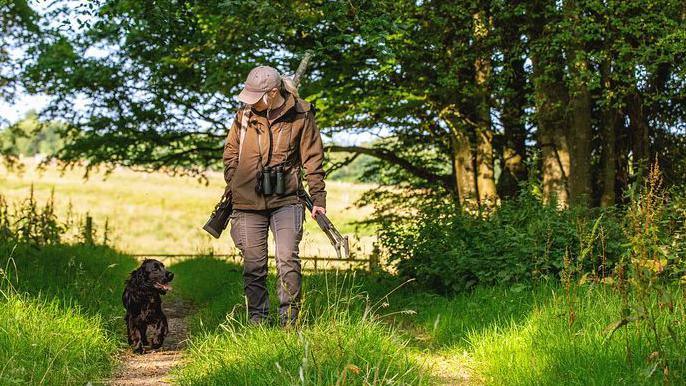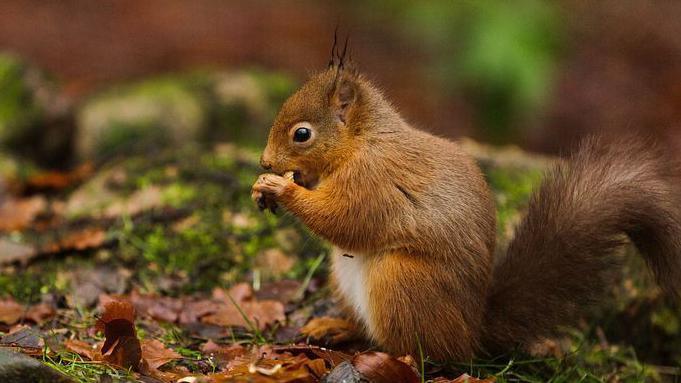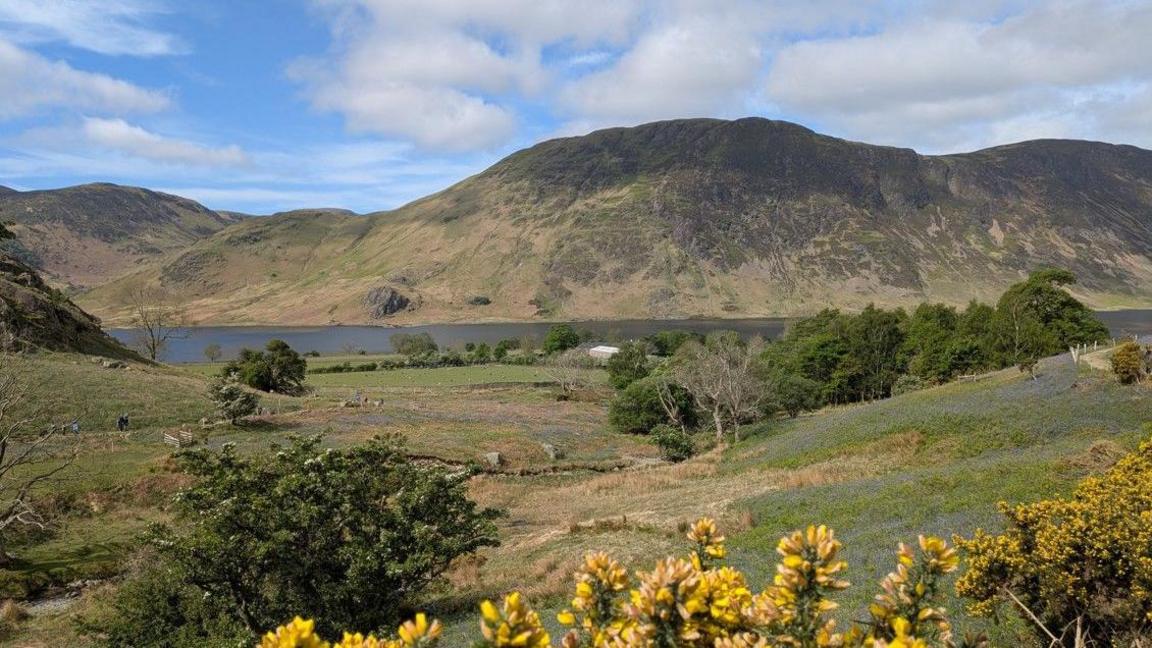Wildlife ranger trainees 'vital' to nature recovery

Organisers of one of the UK's largest nature recovery programmes say the 18-month role will be vital
- Published
A wildlife ranger trainee that could be "vital for nature recovery efforts" in one of the UK's largest habitat restoration projects is set to be appointed.
The new position has been created as part of the Cumbria Connect restoration programme, a drive to restore wildlife and habitats over 42,000 hectares (420 sq km) of land that includes both the Lake District and the Yorkshire Dales.
The trainee will have responsibility for protecting woodlands from high deer populations and bringing back red squirrels and water voles as part of a pilot scheme.
Programme manager Martin Varley said the traineeship had been designed to prepare people for the "complex realities of nature recovery".
"Sometimes, helping one species thrive means reducing the impact of another," he said.
"This is difficult but necessary, and we need skilled, thoughtful people who can navigate it with care, compassion and professionalism."
It is thought the scheme could shape a wider wildlife ranger apprenticeship to be rolled out nationwide.
'Achieving balance'
The pilot scheme is being run by Cumbria Connect in partnership with Forestry England, the Lowther Estate, the RSPB and the National Trust, and could shape a Wildlife Ranger Apprenticeship nationwide.
Jo Sheehan, Venison and Deer Manager at Cumbria Connect, said the trainee would be "vital for nature recovery efforts".
Cumbria Connect has found that in many parts of the county, unsustainably high deer populations were preventing the natural regeneration of woodlands by eating young saplings before they can establish.

It is hoped the role will help protect red squirrels
The organisation said this threatens the recovery of woodlands and can undermine investment in tree planting schemes.
The 18-month traineeship will see people taught about safe and humane deer management, and the removal of native species like American mink, as well as controlling grey squirrel populations to allow red squirrels to flourish.
A Cumbria Connect spokesperson said: "What matters is achieving the right ecological balance."
Follow BBC Cumbria on X, external, Facebook, external, Nextdoor and Instagram, external.
Get in touch
Do you have a story suggestion for BBC Cumbria?
Related topics
- Published12 May
